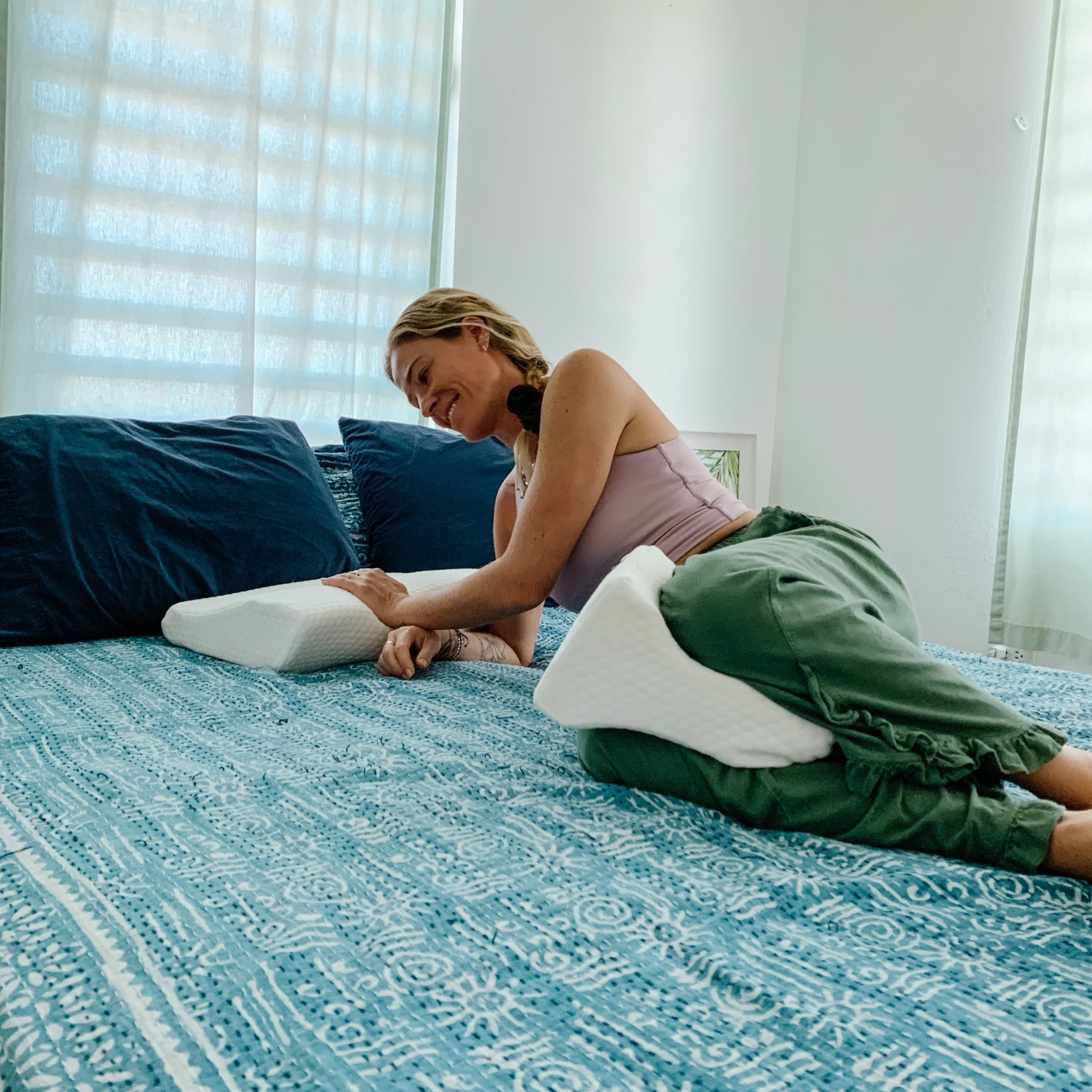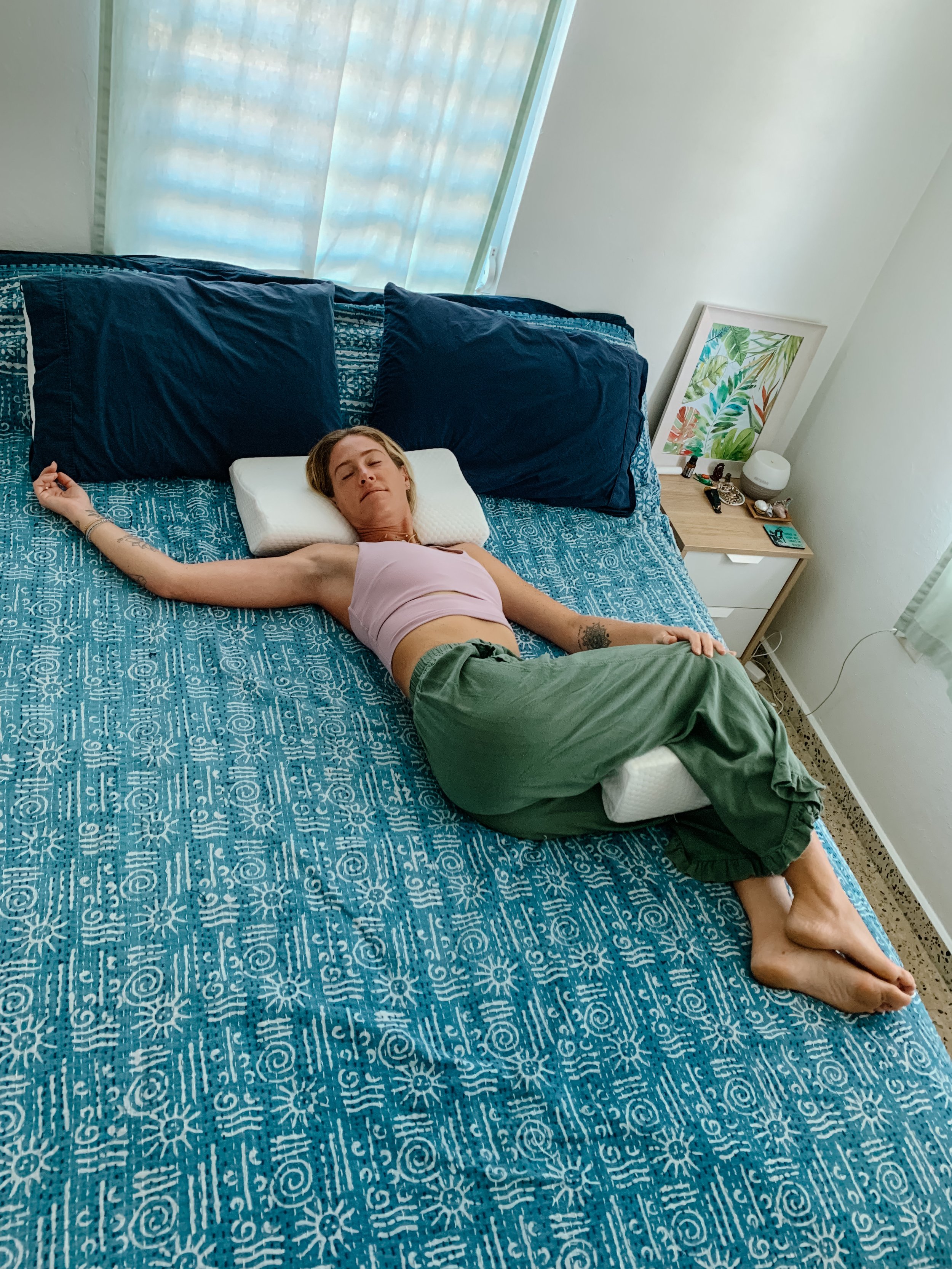Let’s talk about SLEEP.
We spend roughly 1/3 of our lives doing it and those (ideally) 7-9 hours each night are essential if we want to function as a human each day.
While we’re sleeping, different processes — within this brilliant system that is the human body — are working hard to do things like: Heal and repair the brain, muscles, & other organs and tissues, strengthen the immune system, store memories, and process the day’s events. Sleep is crucial for recovery, recalibration, and recharge.
There’s a ton of evidence supporting the direct relationship between sleep, or lack of quality sleep, and overall well-being. A bad night’s sleep can often lead to a rough day, a rough day can sometimes contribute to a bad night’s sleep — the two sometimes feeding one another in a vicious cycle.
If you’re struggling with poor sleep and feeling your best each day, here are 3 tips that I’ve found helpful to promote a good night’s sleep:
1. Invest in quality pillows that support you.
Poor sleeping posture can contribute to a myriad of health problems like neck, back & shoulder pains, headaches, heartburn, excessive snoring, and sleep apnea.
I’m loving my new ProSleepy™ Bamboo Cervical Pillow, designed by top sleep experts to support you & to better align you. As a side-sleeper too, I also love their Orthopedic Knee Pillow to keep my hips & low back happy!
If you’re interested to try some ProSleepy pillows, feel free to use the code SALTY10 for a discount on your order!
2. Explore adding a soothing, evening routine to help you wind down.
Gentle or Restorative yoga, mindful, deep breathing, a comforting cup of tea, and journaling are all great ways to encourage that downshift into more of a parasympathetic or rest & digest mode — but, as always, experiment & find what works best for you!
Practice Notes: Supine Twist with a pillow between my knees & a Supported Butterfly with pillows under my legs (both poses pictured above) are two of my favorites to breathe into before bed and when I wake up in the morning.
3. Support your circadian rhythm with the sun!
Science suggests that sunlight exposure — as soon as possible after waking, again briefly at midday, and again around sunset (& ideally without sunglasses) — can help shift our circadian rhythm (our sleep-wake cycle that repeats roughly every 24hrs) to be more in tune with nature, helping us to wake with the sunrise and start to feel sleepy around the sunset. How cool is that!?
I hope this is helpful and if you have any tips to add, please share in a comment below!





